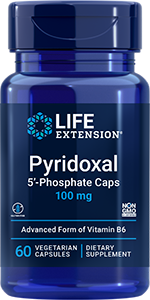Researchers recommend increase in vitamin C dietary allowance  | Friday, July 20, 2012. Scientists at Oregon State University's Linus Pauling Institute are proposing an increase in the recommended dietary allowance (RDA) for vitamin C from the current level of 90 milligrams per day for men and 75 milligrams for women, to a modest intake of 200 milligrams. Writing in a recent issue of Critical Reviews in Food Science and Nutrition, Professor Balz Frei and colleagues observe that the current RDA is based on the amount necessary to prevent scurvy and that present methods of evaluating nutrients such as vitamin C have often failed to find further disease-preventive benefits due to faulty methodology. "Phase III randomized controlled trials—designed principally to test the safety and efficacy of pharmaceutical drugs—are ill suited to assess the health benefits of essential nutrients; and the currently available scientific evidence is sufficient to determine the optimum intake of vitamin C in humans," they write. "It's time to bring some common sense to this issue, look at the totality of the scientific evidence, and go beyond some clinical trials that are inherently flawed," commented Dr Frei, who is the director of the Linus Pauling Institute. "Significant numbers of people in the U.S. and around the world are deficient in vitamin C, and there's growing evidence that more of this vitamin could help prevent chronic disease. The way clinical researchers study micronutrients right now, with the same type of so-called 'phase three randomized placebo-controlled trials' used to test pharmaceutical drugs, almost ensures they will find no beneficial effect. We need to get past that." Dr Frei and his coauthors argue that these trials do not always demonstrate the protective properties of compounds already present in the human body, whose benefits may be evident only after many years of optimal intake. They note that increased long-term intake of vitamin C will provide greater tissue saturation at a cost of only a penny per day if consumed as a supplement, resulting in a significant payoff of lowered risks of cardiovascular disease and cancer as well as a reduction in the conditions that contribute to these diseases, including inflammation. "We believe solid research shows the RDA should be increased," Dr Frei concluded. "And the benefit-to-risk ratio is very high. A 200 milligram intake of vitamin C on a daily basis poses absolutely no risk, but there is strong evidence it would provide multiple, substantial health benefits." |
 |
| In a review published online on April 4, 2012 in the American Journal of Clinical Nutrition, researchers from Johns Hopkins in Baltimore report a reduction in systolic and diastolic blood pressure in associated with vitamin C supplementation. For their analysis, Edgar R. Miller III and his colleagues selected 29 randomized clinical trials conducted between 1996 and 2011 that involved the oral administration of vitamin C for at least two weeks. Average pretreatment systolic blood pressure ranged from 117 to 175 mmHg, and diastolic from 73 to 97 mmHg. The dose of vitamin C used in the studies varied from 60 to 4000 milligrams per day, with a median dose of 500 milligrams daily. In a pooled analysis of the trials' participants, vitamin C supplementation was associated with a 3.84 mmHg reduction in systolic blood pressure and a 1.48 mmHg reduction in diastolic pressure. When trials involving patients with hypertension were analyzed, reductions averaged 4.85 mmHg and 1.67 mmHg. Mechanisms posited for vitamin C in reducing blood pressure include an increase in a cofactor for endothelial nitric oxide synthase (which increases the production of nitric oxide), and improvement of endothelial function of brachial and coronary arteries. "This meta-analysis is the first quantitative review of randomized trials evaluating the effect of vitamin C supplementation on blood pressure," the authors announce. "In short-term trials, vitamin C supplementation reduced systolic blood pressure and diastolic blood pressure. Long-term trials on the effects of vitamin C supplementation on blood pressure and clinical events are needed." |
|

|  | Super K with Advanced K2 Complex
90 softgels
Item #01224
 |  | | Vitamin K1 is the form found in plants and vegetables and should be part of most people's daily supplement regimen. Even more important is inclusion of the MK-4 and MK-7 forms of vitamin K2. Based on data substantiating the long-acting effects of MK-7, it is now possible to ingest fewer total micrograms of vitamin K but achieve far higher sustained blood levels of this critical nutrient. The Super K formula provides vitamin K1 and the MK-4 and MK-7 forms of vitamin K2 in just one daily softgel. The virtue of this formula is that it provides the precise amount of the long-acting MK-7 form of vitamin K2 that recent human studies have shown provides optimal K2 levels over a 24-hour period. The MK-4 is included to provide the rapid increase in vitamin K blood levels that may account for its beneficial effects in certain studies. | |  | Pyridoxal 5'-Phosphate Caps
100 mg, 60 vegetarian capsules
Item #01217 |  | | Vitamin B6 (pyridoxine HCl), found in conventional supplements, plays a crucial role in numerous life processes. Pyridoxal 5'-phosphate is the metabolically active form of vitamin B6 that has been shown to protect living lipids and proteins against glycation reactions. Aging results in the formation of advanced glycation end products (AGEs) throughout the body. Sugar (glucose) in the blood can react with proteins and lipids in the body, particularly when blood levels are high. This unwanted reaction causes the formation of AGEs, which accumulate with time and contribute to some of the signs of aging. Life Extension has previously presented information that high-dose carnosine and benfotiamine can be helpful in preventing AGE formation. The latest information shows that pyridoxal 5'-phosphate may also be of significant help in preventing the formation of these aging molecules. By preventing AGE formation and working as a coenzyme in chemical reactions, pyridoxal 5'-phosphate can support healthy nerve, eye, cardiovascular and kidney function. | | |













